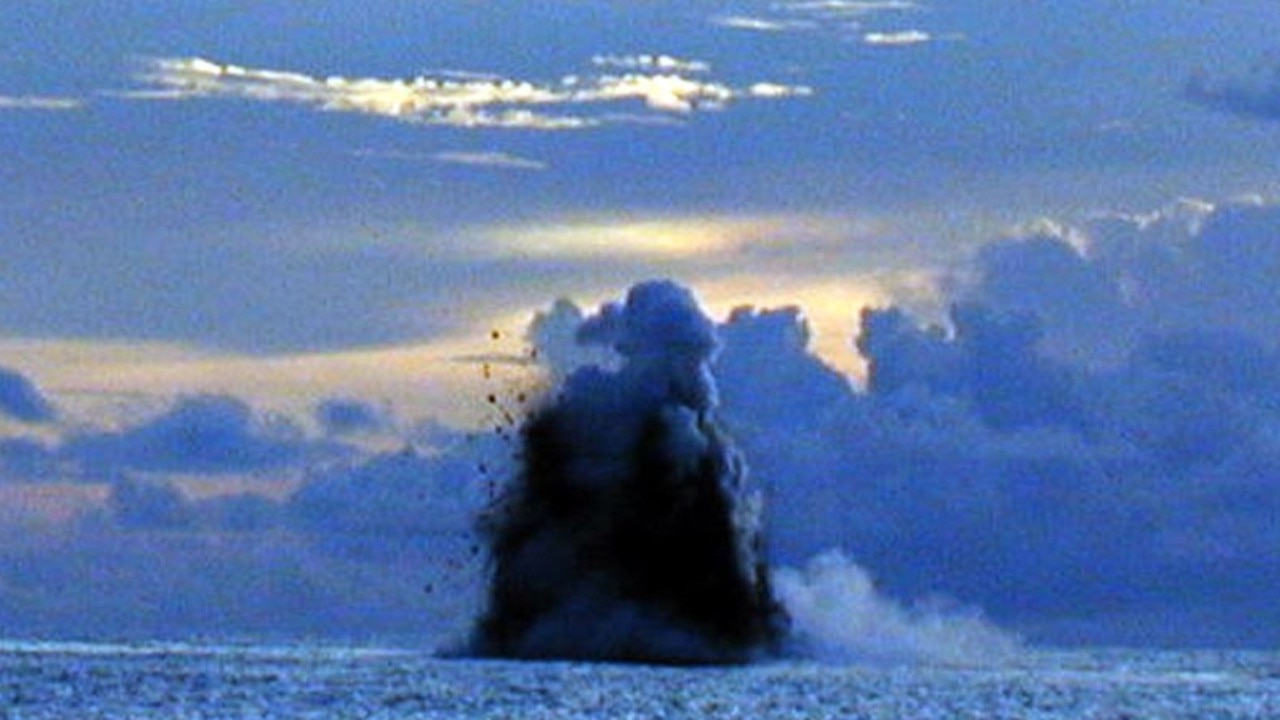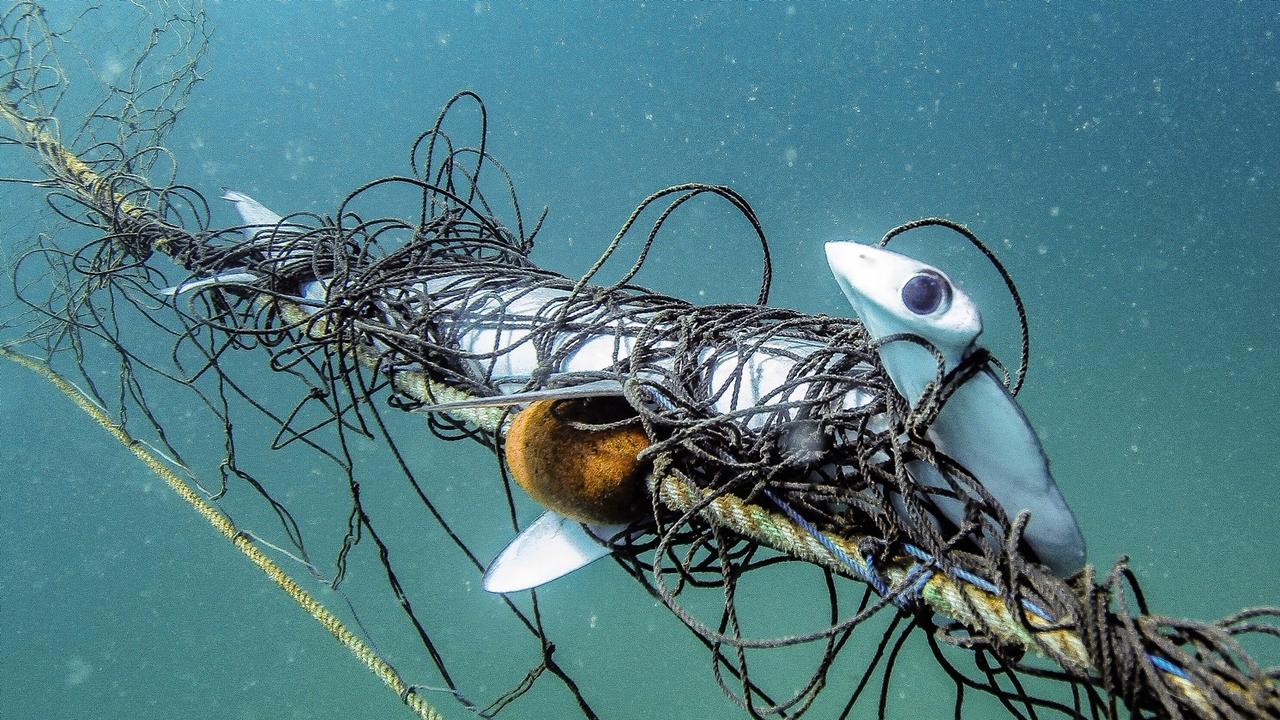Sharks found living in active volcano Kavachi in Solomon Islands
Critically endangered sharks have been found living inside an active volcano near the Solomon Islands.
Forget “Sharknado” — there is a real-life Sharkcano!
A new documentary, Sharkcano, premiered on National Geographic in July as part of National Geographic’s Sharkfest, and explored sharks that live and hunt around underwater volcanoes in extreme conditions that are not palatable to many other forms of life.
Ocean engineer Brennan Phillips led a team to the remote Solomon Islands in search of hydrothermal activity. They found plenty of activity — including sharks in a submarine volcano.
RELATED: Woman in hospital after whale encounter
RELATED: Snake snatches Queensland kitten

RELATED: Finally some good news for koalas
RELATED: Bird flu discovered on Aussie farm
The main peak of the volcano, called Kavachi, was not erupting during their expedition, so they were able to drop instruments, including a deep-sea camera, into the crater. The footage revealed hammerheads and silky sharks living inside, seemingly unaffected by the hostile temperatures and acidity,” a summary found on the channel’s YouTube site notes.
Brennan Phillips, a biological oceanography Ph.D. student at the University of Rhode Island, said in the video, “The idea of there being large animals like sharks hanging out and living inside the caldera of the volcano conflicts with what we know about Kavachi, which is that it erupts.”

Dr Michael Heithaus of Florida International University, another member of the team, told Newsweek, “it isn’t just about active volcanoes. It’s about the habitat they create out in the middle of the ocean. … If there hadn’t been volcanoes in certain areas there would be no reefs or no land. That would mean that the species of sharks that need those habitats couldn’t live in those areas without the presence of a volcano.”
There are actually several sharkcanos – off the coast of Réunion, in the Indian Ocean. Dr Heithaus finds bull sharks taking advantage of the turbulent water, using it as a way of ambushing prey, as well as one near Guadalupe Island, off of the west coast of Mexico.
He told Newsweek the volcanoes provide the ocean with nutrients and attract fish, adding, “where you have lots of food you tend to have lots of sharks, if there isn’t too much fishing to reduce their populations.”
This article originally appeared on the New York Post and was reproduced with permission



